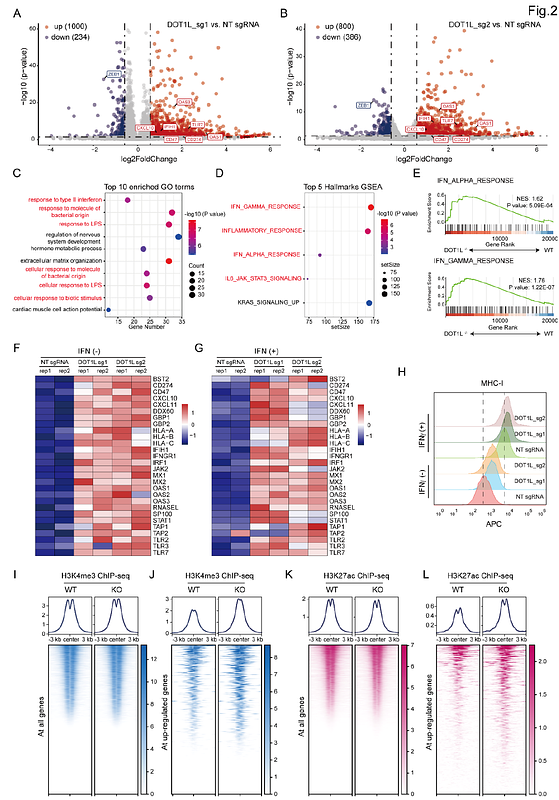Dual function of DOT1L suppresses tumor intrinsic immunogenicity in hepatocellular carcinoma

Dual function of DOT1L suppresses tumor intrinsic immunogenicity in hepatocellular carcinoma
Xu, S.; Gong, R.; Liu, S.; Wang, J.; Shen, Y.; Peng, C.; Feng, Q.; Luo, M.; Lan, F.; Fan, J.; Cai, J.; Lan, X.
AbstractImmune checkpoint inhibitor (ICB) therapy for many cancers remains limited in patients overall response rate. Discovery and development of more effective combinatorial approaches is urgent. Here, through CRISPR/Cas9 genetic screens, we identify DOT1L as a versatile epigenetic factor that functions to suppress tumor-intrinsic immunity through a dual mechanism. Depletion of DOT1L induces the expression of transposable elements and subsequent type I interferon (IFN) response, and meanwhile lowers ZEB1 levels to further unleash the expression of immune-related genes. In turn, we demonstrate that DOT1L loss or treatment with the clinical stage inhibitor EPZ-5676 sensitizes tumors to ICB with increased immune infiltration in mice. More importantly, EPZ-5676 treatment alone is sufficient to enhance antitumor immunity in humanized mice. TCGA data analysis reveals an inverse correlation between DOT1L expression and IFN signatures across multiple cancer types. These findings provide a rationale for targeting DOT1L to improve tumor immunogenicity and overcome immunotherapy resistance.